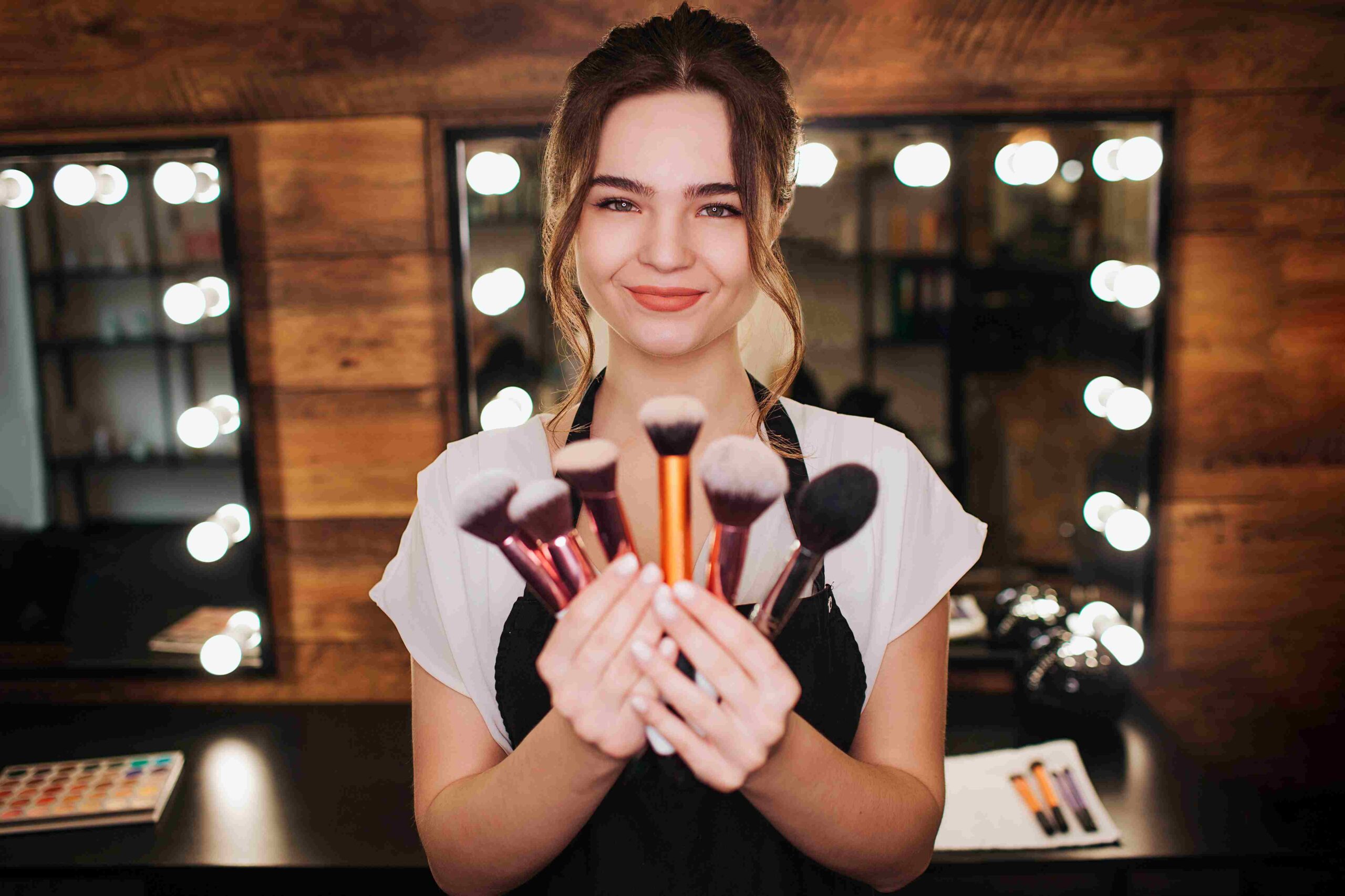
Makeup artistry is a fascinating field that has evolved significantly over the years, transitioning from simple application techniques to sophisticated art forms that enhance beauty, create characters, and even tell stories. Whether in fashion, film, television, or special events, makeup artists play a pivotal role in shaping how we perceive beauty and character portrayals. This blog post will explore the intricate art of makeup, the skills required to become a makeup artist, the different specializations within the field, and the evolving trends that are shaping the industry.
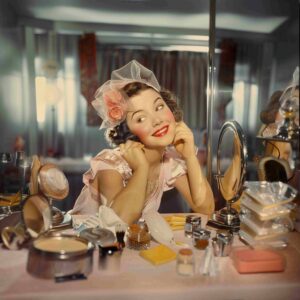
The History of Makeup Artistry
The practice of applying makeup dates back thousands of years, tracing its origins to ancient civilizations such as the Egyptians and Greeks, who used various materials to enhance their features and convey status. In ancient Egypt, both men and women adorned themselves with kohl (a form of eyeliner) to protect their eyes from the sun and to signify social status. Similarly, during the Roman Empire, the use of cosmetics was widespread, with women using pigments made from natural minerals and plants to beautify themselves.
The 20th century brought significant changes to the makeup industry, thanks in part to the film and theater industries, where makeup artists began to experiment with new techniques and products. The rise of Hollywood in the 1920s and 1930s introduced iconic looks that became synonymous with certain stars, and the profession of makeup artist started to gain recognition. The post-war period saw an explosion of cosmetic brands and the democratization of makeup, enabling everyday individuals to experiment with their looks.
Today, makeup artistry has matured into a recognized profession with its own set of standards, techniques, and tools, preparing artists to create visually captivating works of art on the human canvas.
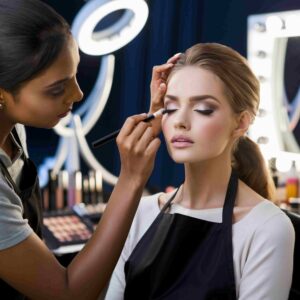
Skills and Education Required to Become a Makeup Artist
Making a career as a makeup artist requires a blend of artistic ability, technical skill, and a strong understanding of beauty and cosmetic products. Here are some critical skills and attributes that aspiring makeup artists typically need to develop:
Artistic Sensibility: A keen eye for color, shape, and design is vital. Makeup artists must be able to visualize how different colors and textures will interact with skin tones and facial features.
Technical Skills: Mastery of various makeup application techniques, including foundation application, contouring, eyeshadow placement, and special effects makeup, is essential. Proficiency in the use of brushes, sponges, and other makeup tools is also crucial.
Knowledge of Products: Understanding the properties of different makeup products, such as primers, foundations, and setting sprays, is necessary to achieve the desired look while considering skin types and conditions.
Communication Skills: Makeup artists often work closely with clients, actors, or models to understand their preferences and visions. Good communication skills will help convey ideas effectively and manage expectations.
Creativity and Adaptability: The makeup industry is constantly evolving, and makeup artists must be flexible and open to new trends, techniques, and styles. Creativity is vital for inventing unique looks or adapting to various projects.
Attention to Detail: Even the smallest flaw can alter the overall effect of a makeup look. A successful makeup artist must possess exceptional attention to detail.
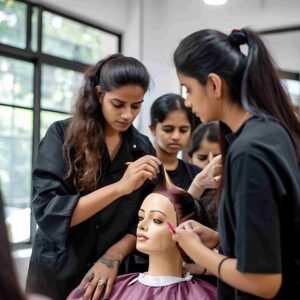
Education and Training
While formal education is not always a requirement to work as a makeup artist, many choose to attend beauty schools or cosmetology programs that offer specialized courses in makeup application. These programs usually cover topics such as skincare, color theory, and various makeup application techniques. Additionally, aspiring artists may benefit from workshops, online courses, and internships that provide hands-on experience and exposure to industry standards.
Building a portfolio showcasing work can be an essential step in securing clients. Many makeup artists start their careers by working as assistants to established artists, providing invaluable experience and insights into the industry.
Makeup Artist Training
Areas of Specialization in Makeup Artistry
Makeup artistry is a diverse field, allowing professionals to specialize in various areas, including:
Beauty Makeup: This specialization focuses on enhancing natural beauty for clients at weddings, proms, and other special events. Beauty makeup artists work with a wide range of techniques to achieve flawless skin, highlighted features, and harmonious color palettes.
Fashion Makeup: Fashion makeup artists work primarily in the clothing and accessory industry, creating looks for runway shows, editorial photoshoots, and advertising campaigns. This specialization often involves working closely with stylists and photographers to create cohesive looks that align with the vision of the designer.
Special Effects Makeup: Special effects (SFX) makeup artists use their skills to create dramatic transformations, often seen in film, theater, or television. These artists use prosthetics, face paint, and other tools to create characters, monsters, and fantasy figures, requiring advanced skills in sculpting and molding.
Theatrical Makeup: This area focuses on creating unique looks for live performances, including plays, musicals, and operas. Theatrical makeup artists must consider stage lighting and distance when crafting their designs, often using bolder colors to ensure visibility from afar.
Airbrush Makeup: Airbrush techniques have become increasingly popular for achieving a flawless finish, particularly in photography and film. Specialization in airbrushing requires training in the use of airbrush tools and products to create an even application of makeup.
Bridal Makeup: Bridal makeup artists specialize in creating timeless and beautiful looks for brides. Since weddings can be emotionally charged and long-lasting events, these artists must work well under pressure and be skilled in creating makeup that both photographs beautifully and holds up throughout the day.
Fashion Editorial Makeup: This genre focuses on creating high-fashion looks for editorial spreads in magazines and campaigns. The makeup often pushes boundaries with bold colors, avant-garde styles, and creative artistry.

The Impact of Social Media and Technology
In recent years, social media has dramatically reshaped the makeup industry, providing aspiring artists with platforms to showcase their skills and reach a global audience. Platforms like Instagram, TikTok, and YouTube have become essential tools for makeup artists to build their brands, post tutorials, and connect with fans and clients. Influencers in the beauty sphere often collaborate with makeup artists, creating opportunities to gain recognition and expand their client base.
Moreover, advancements in technology have led to the development of innovative products and techniques. For example, augmented reality (AR) applications allow consumers to “try on” different looks and products digitally before making a purchase. This technology has also been adopted by makeup artists to enhance their client consultations.
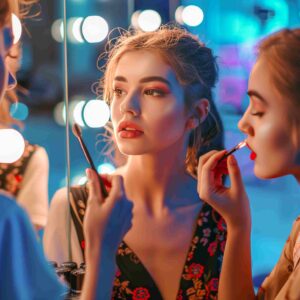
Emerging Trends in Makeup Artistry
As the beauty industry continues to change, several trends have emerged that are shaping the future of makeup artistry:
Inclusivity in Beauty: The demand for representation across all skin tones, gender identities, and age groups has pushed makeup brands and artists to prioritize inclusivity in their offerings and techniques.
Sustainability: With a growing awareness of environmental issues, many artists and brands are seeking sustainable alternatives, such as eco-friendly products and packaging. Committed artists are also highlighting cruelty-free practices in their work.
Minimalist Trends: The no-makeup makeup look has gained traction, with many opting for a natural appearance that highlights features rather than masking them. This trend requires makeup artists to master application techniques that focus on enhancement and skin care.
Creative Self-Expression: Artists are increasingly using makeup to explore bold colors, graphic designs, and avant-garde techniques, often as a form of art rather than simply beauty.
Education and Client Engagement: As clients become more knowledgeable about makeup, artists are taking on roles as educators, providing tips and advice in their sessions and online platforms to foster a better understanding of makeup application.
Conclusion
Makeup artistry is an ever-evolving field that serves as a dynamic intersection of art, beauty, and personal expression. The role of a makeup artist requires a combination of skills, creativity, and passion, as well as a desire to adapt to the changing trends and preferences of clients. From weddings and fashion shows to film and television, makeup artists continue to push the boundaries of what is possible with cosmetics, shaping how we perceive beauty and creativity in society. As this exciting field advances, aspiring makeup artists have more opportunities than ever to leave their artistic mark on the world.
Frequently Asked Questions (FAQ)
Consider the artist’s experience, portfolio, and specialization. Look for reviews and recommendations from others who have used their services.
Artistic sensibility, technical skills, knowledge of products, communication skills, creativity, adaptability, and attention to detail are key.
A good makeup artist kit includes a variety of brushes, sponges, and other tools for applying different products.
Test the foundation on your jawline under natural light to ensure a seamless match.
Exfoliate and moisturize your skin regularly to create a smooth canvas for makeup.



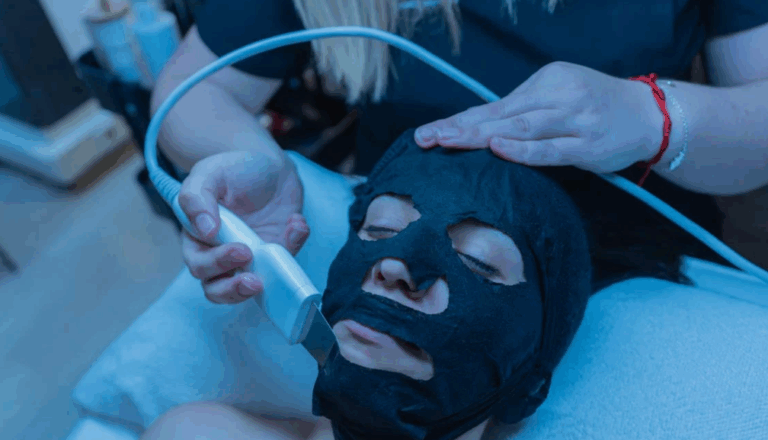 " alt="Microdermabrasion Training: What to Expect & How to Get Certified" />
" alt="Microdermabrasion Training: What to Expect & How to Get Certified" />
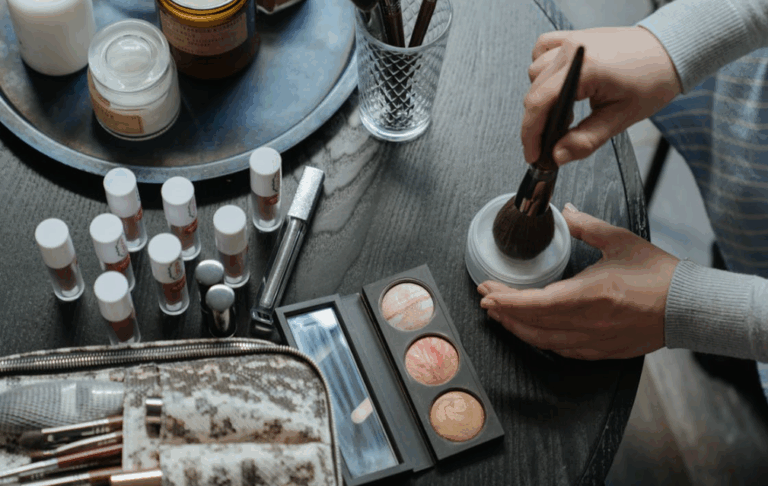 " alt="Permanent Makeup: A Step-by-Step Guide to Starting Your Career" />
" alt="Permanent Makeup: A Step-by-Step Guide to Starting Your Career" />
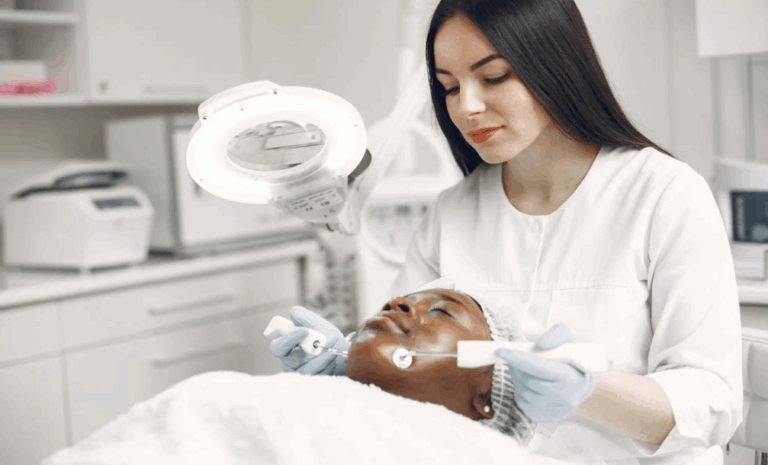 " alt="Skincare Specialist Salary: How Much Can You Earn in 2025?" />
" alt="Skincare Specialist Salary: How Much Can You Earn in 2025?" />